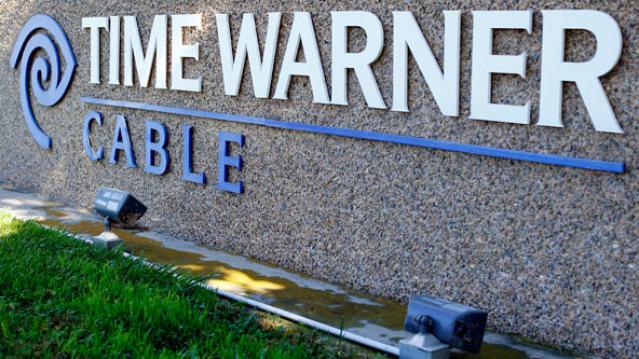Charter to Buy Time Warner Cable: Winners and Losers

Charter Communications on Tuesday said it will acquire Time Warner Cable in a deal valued at more than $55 billion. Charter will also buy Bright House Networks, a smaller cable company, for $10.4 billion. The two deals combined will make Charter into the second-largest cable and broadband provider in the U.S., with about 24 million subscribers, behind only Comcast, which has about 27 million subscribers.
WINNERS
Time Warner shareholders: An extra $10 billion over the $45.2 billion Comcast had offered sure makes for a nice payday after the earlier deal got scrapped. “Time Warner Cable has succeeded in extracting a fantastic price for its shareholders, far exceeding our expectations,” Morningstar strategist Michael Hodel wrote Tuesday. Hedge fund managers John Paulson of Paulson & Co. and Chris Hohn of Children’s Investment Fund Management reportedly both had sizable holdings in Time Warner Cable.
Time Warner Cable subscribers: The company’s service is reviled by customers. Charter’s isn’t exactly beloved, either, and subscribers may not see any immediate changes, but Charter promises that the deal will translate into faster broadband for subscribers and more free public Wi-Fi. Whether it actually does or not, the deal seems to spell the end of the Time Warner Cable name. Subscribers won’t miss it.
John Malone: The Liberty Media billionaire finally gets the megadeal he’s been looking for to make Charter Communications into a major industry power. If the deals goes through, the company would become the second-largest cable and broadband provider in the country, with some 24 million total subscribers.
Related: Charter and Time Warner Cable Merger: It’s All About Broadband
LOSERS
Comcast: At least CEO Brian Rogers was graceful about the prospect of a larger competitor. "This deal makes all the sense in the world,” he said in a statement. “I would like to congratulate all the parties."
Television content providers: One rationale for the deal is that the scale of the combined company will afford it more leverage in its negotiations with programmers.
Cable customers and online video watchers? The proposed deal still concerns consumer advocates like those at public interest group Free Press. “The issue of the cable industry's power to harm online video competition, which is what ultimately sank Comcast’s consolidation plans, are very much at play in this deal,” said Derek Turner, research director for Free Press. “Ultimately, this merger is yet another example of the poor incentives Wall Street’s quarterly-result mentality creates. Charter would rather take on an enormous amount of debt to pay a premium for Time Warner Cable than build fiber infrastructure, improve service for its existing customers or bring competition into new communities.”
Budget ‘Chaos’ Threatens Army Reset: Retired General
One thing is standing in the way of a major ongoing effort to reset the U.S. Army, writes Carter Ham, a retired four-star general who’s now president and CEO of the Association of the U.S. Army, at Defense One. “The problem is the Washington, D.C., budget quagmire.”
The issue is more than just a matter of funding levels. “What hurts more is the erratic, unreliable and downright harmful federal budget process,” which has forced the Army to plan based on stopgap “continuing resolutions” instead of approved budgets for nine straight fiscal years. “A slowdown in combat-related training, production delays in new weapons, and a postponement of increases in Army troop levels are among the immediate impacts of operating under this ill-named continuing resolution. It’s not continuous and it certainly doesn’t display resolve.”
Pentagon Pushes for Faster F-35 Cost Cuts

The Pentagon has taken over cost-cutting efforts for the F-35 program, which has been plagued by years of cost overruns, production delays and technical problems. The Defense Department rejected a cost-saving plan proposed by contractors including principal manufacturer Lockheed Martin as being too slow to produce substantial savings. Instead, it gave Lockheed a $60 million contract “to pursue further efficiency measures, with more oversight of how the money was spent,” The Wall Street Journal’s Doug Cameron reports. F-35 program leaders “say they want more of the cost-saving effort directed at smaller suppliers that haven’t been pressured enough.” The Pentagon plans to cut the price of the F-35A model used by the Air Force from a recent $94.6 million each to around $80 million by 2020. Overall, the price of developing the F-35 has climbed above $400 billion, with the total program cost now projected at $1.53 trillion. (Wall Street Journal, CNBC)
Chart of the Day - October 6, 2017
Financial performance for insurers in the individual Obamacare markets is improving, driven by higher premiums and slower growth in claims. This suggests that the market is stabilizing. (Kaiser Family Foundation)
Quote of the Day - October 5, 2017
"The train's left the station, and if you're a budget hawk, you were left at the station." -- Rep. Mark Sanford, R-S.C.


